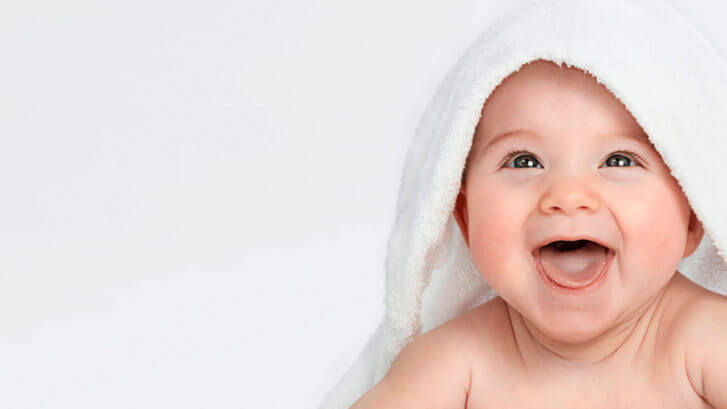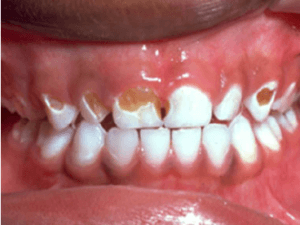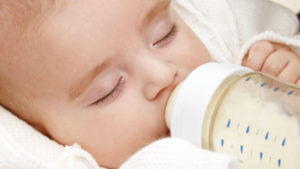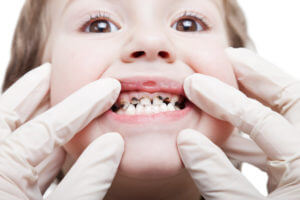
How to take care of baby teeth
How to take care of baby teeth?
Every parent is worried how to take care of baby teeth once they begin to see that pretty tiny tooth .We have discussed about the common problem with baby teeth,and ways to avoid.
Dental Care for Baby
For the healthy future and wellbeing of our children, access to medical and dental care plays a crucial role. When a baby is born, everyone fixes an appointment with the Paediatrician.
But how many of us will consult a Dentist?
Many parents have a tough time judging how much dental care their kids need and when to seek the help of a dentist.
Oral health holds an important role in general health that affects one’s ability to speak, chew and swallow.
It also affects other qualities of life such Dentofacial Aesthetics, Self-esteem, Learning skills and levels of usual activities.
Early childhood caries (ECC) is the most common chronic childhood disease and people continue to be susceptible to it throughout their lives.
Early Childhood Caries
In 2003, the American Academy of Paediatric Dentistry (AAPD) defined ECC as “The presence of one or more decayed (noncavitated or cavitated lesions), missing (due to carries) or filled tooth surfaces in any primary tooth in a child up to 71 months of age or younger”.

Etiology
Early childhood caries is a multifactorial disease.
Cariogenic microorganisms, such as streptococcus mutans is responsible for initiation and development of ECC.
Streptococcus mutans can be transmitted by vertical transmission, primarily through the mother who has not undergone treatment for carries.
Inappropriate feeding practices, such as bottle feeding at bedtime or allowing the child to fall asleep with a bottle containing fermentable carbohydrates throughout the day have also been associated with the caries appearance.

ECC is also associated with demographic characteristics, oral hygiene practices, parental attitudes, educational status of mother, socio-economic status, breathing habit, siblings, pacifiers dipped in honey, children with chronic illness or special health care needs and other feeding habits, malnutrition, material nutrition, psychosocial issues, frequent use of medications and parenting practice.
Clinical considerations
Initially ECC appears as white spots on the facial tooth surface adjacent to the gingival margin.
When it progresses to cavities, it might turn to yellow/ brown/ black discolouration.
ECC first affects the primary maxillary anterior teeth followed by the primary molars.
In children younger than three years of age, any sign of smooth surface caries indicates severe ECC.
Consequences of untreated ECC
If ECC is left untreated, it can cause considerable pain, which can lead to difficulty in eating thereby resulting in nutritional insufficiencies causing reduced growth and development of the child.
If the extent of damage is very severe, it causes loss of the child’s front teeth by age of two or three years. The child may suffer from further developmental delays involving speech articulation and pattern.

Again they can suffer from psychological trauma, from comments made by siblings, peers and even family members when their teeth are lost at an early age.
Early loss of primary teeth may affect the alignment of the permanent teeth and increases risk of orthognathic problems later in life.
Although ECC is not life threatening, if left untreated, it may lead to bacteraemia and children with severe ECC often require costly treatment with hospitalization under sedation or General anaesthesia.
Management of ECC
Recommendations for parental oral health
Referral for a comprehensive oral examination and treatment during pregnancy is especially important for the mother.
Removal of active caries and restoration of teeth, in the parents suppresses the bacterial reservoir and minimizes the transfer of streptococcus mutans to the infant, thereby decreasing the infant’s risks of developing ECC.
Brushing with fluoridated toothpaste and flossing by the parent are important to help dislodge food and reduce bacterial plaque levels.
Avoid saliva-sharing behaviours (e.g. sharing spoons and other utensils, sharing cups, cleaning a dropped pacifier or toy with their mouth) can help prevent early colonization of streptococcus mutans in infants.
Primary prevention of ECC should begin with prenatal education of parents on etiology and prevention of ECC.
Recommendations for the infant’s oral health (Birth to 23 months of age)
Clean infant’s gums with a damp washcloth after meals and before bed prior to tooth eruption; do not use tooth paste when performing oral healthcare before teeth have erupted.
Avoid putting infants to bed with a bottle containing any fermentable carbohydrates (e.g. juice, milk, all forms of sugar and cooked starches).
Avoid on-demand breastfeeding at night after the eruption of the first tooth.
Introduce infants to drink milk in a cup as they approach twelve months of age which will help with the transition from the bottle.
Infant’s first dental visit
The child’s first dental visit should be within 6 months of tooth eruption and not later than 12 months of age.
Children (2 to 5 years of age)
After tooth eruption, clean the child’s teeth with washcloth and progress to child size soft bristled toothbrush.
Start using toothpaste after tooth eruption (approximately 18 to 24 months of age), usually a pea-size amount of fluoride toothpaste is recommended.
Caregivers should demonstrate proper brushing technique and guide the child in brushing, reminding the child about the importance of proper oral hygiene.
Encourage children to eat regular nutritious meals and avoid frequent between-meal sacking.
The child should have a dental visit if teeth have not erupted by 12 months of age, and every 6 months thereafter.
Consult with the dentist about fluoride supplements for children 6 months of age or older, whose drinking water is less than optimally fluoridated.
Conclusion
Early childhood caries is a preventable disease that continues to negatively affect the oral health of infants and children. It is very important to give dental care to the toddler, even though his/ her primary tooth will be exfoliated in future.
For more details or appointemnt with dentist Dr.Kamini and/or Dr.Pawan visit
Ramchandras Jussmile Dental Clinic & Dental Implant Centre,
1333/A,B1,Royal Castle Apartments,
7th cross street,
Poompuhar Nagar,Kolathur,
Chennai-99
To fix an appointment online – Click Here
You can also reach them through phone +91 9884336617 / +91 44 42802255, or email at info@jussmile.com


Leave a Reply